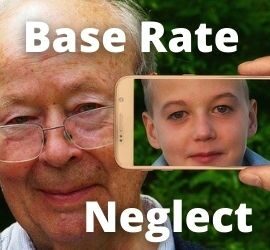What is Net Change? Net change refers to the difference in the closing price of a stock, bond, or other traded financial instrument from one period to the next. In general, net change is the difference between a previous value and its current value. In the stock market, it most […]
Financial Analysis
What is Base Rate Neglect? Base rate neglect refers to a tendency to rely more on specific information than actual probability and statistics when making judgments. Base rate neglect is an error in reasoning. Too little weight is placed on the base rate possibility or actual probability of an event […]
GWACs – What are Government-Wide Acquisition Contracts? GWACs are government-wide acquisition contracts. They let government agencies align their needs and jointly purchase contracts for goods and services. With GWACs, multiple government agencies can align their needs and purchase a contract for goods or services. As a result, GWACs allow for […]
What Is a Posterior Probability? Posterior probability is the probability an event will happen after all evidence or background information has been taken into account. It is a revised probability that takes into account new available information. In Bayesian statistics, it is the revised or updated probability of an event. However, […]
What Is the Certainty Equivalent? A certainty equivalent is a guaranteed return that someone would accept now rather than taking a chance on a higher, but uncertain or risky return later. Put another way, we can say it is the lesser amount of money that one would accept to deny […]
What are Period Costs? Period costs are the indirect costs of production that cannot be capitalized on a company’s balance sheet. They show on the Income Statement. Product costs and period costs are two categories of costs that a company incurs producing and selling their product or service. A period cost […]






